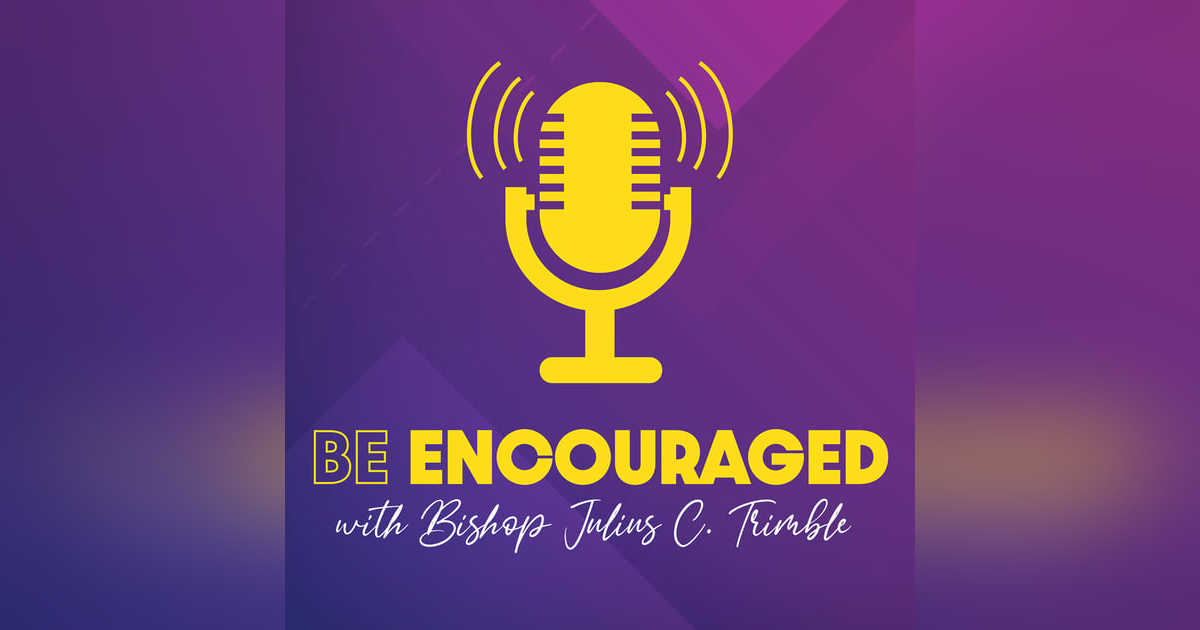Bishop Trimble Discusses the Christian Response to Political Violence and Nationalism

Bishop Julius C. Trimble is the Resident Bishop of the Indiana Area of the United Methodist Church.
Bishop Trimble has the personal mission to encourage all people with the love of Jesus Christ to rise to their highest potential. It is his commitment to his personal mission that led Bishop Trimble to create the “To Be Encouraged” Podcast along with co-host Rev.Dr. Brad Miller.
Bishop Trimble says, “I am compelled by Jesus to share with you an encouraging word or two about Jesus, theology, the Bible, the pandemic, the environment, racism, voting rights, human sexuality, and the state of the United Methodist Church.”
To Be Encouraged with Bishop Julius C. Trimble is to be published weekly and is available at www.tobeencouraged.com and all the podcast directories.
https://www.inumc.org/bishop/office-of-the-bishop/
Welcome to the To Be Encouraged podcast, featuring Bishop Julius C. Trimble. In this episode, we delve into the urgent need for the Church to address the escalating political violence and the misuse of the gospel in political discourse. Bishop Trimble emphasizes the church's role in promoting civility, mutual respect, and the dignity of all people. This enriching conversation offers a roadmap for how local pastors and church communities can be prophetic voices advocating peace, justice, and love.
#### Three Key Takeaways:
1. **Rejection of Violence as a Solution:**
- Bishop Julius C. Trimble denounces the use of violence to resolve political differences, emphasizing it as an ongoing issue in the United States and beyond.
- The Church must consistently speak out against violence and offer a message of love and prayer for enemies, aligning with Jesus' teachings.
- Political leaders who advocate or imply violence provide dangerous license to unstable individuals, underscoring the need for the Church to promote a culture of life and mutual respect.
2. **Role of the Church in Political Engagement:**
- The Church's political involvement should be rooted in the gospel imperative to love our neighbors and promote the common good.
- Pastors are encouraged to utilize scripture and the United Methodist Social Principles as foundational guidelines for political action.
- The Church should focus on creating a "Beloved Community" that values all people equally, irrespective of political or social differences.
3. **Empowerment Through Political and Social Action:**
- Bishop Trimble advises listeners to continue praying, registering, and voting as practical steps to effect change.
- The Church must not only pray for the courage to accept change but also actively work to change what cannot be accepted.
- Encouraging words and hopeful actions are essential as the Church faces societal challenges. The focus should be on creating a better world for future generations by advocating for basic rights such as housing, nutrition, and living wages.
#### Prayer for Encouragement:
Bishop Trimble ends the episode with a heartfelt prayer asking for God's guidance to help us become more hospitable, humble, and prophetic followers of Jesus Christ. He prays for a deeper sense of community, belonging, and prophetic witness among believers.
#### Join the Conversation:
We invite you to reflect on how the teachings from this episode can be applied in your own communities. How can you be an agent of change and a beacon of love in these turbulent times?
Thank you for tuning in to the To Be Encouraged podcast. For more inspiring conversations, visit tobeencouraged.com and subscribe to the podcast on your favorite platform.


